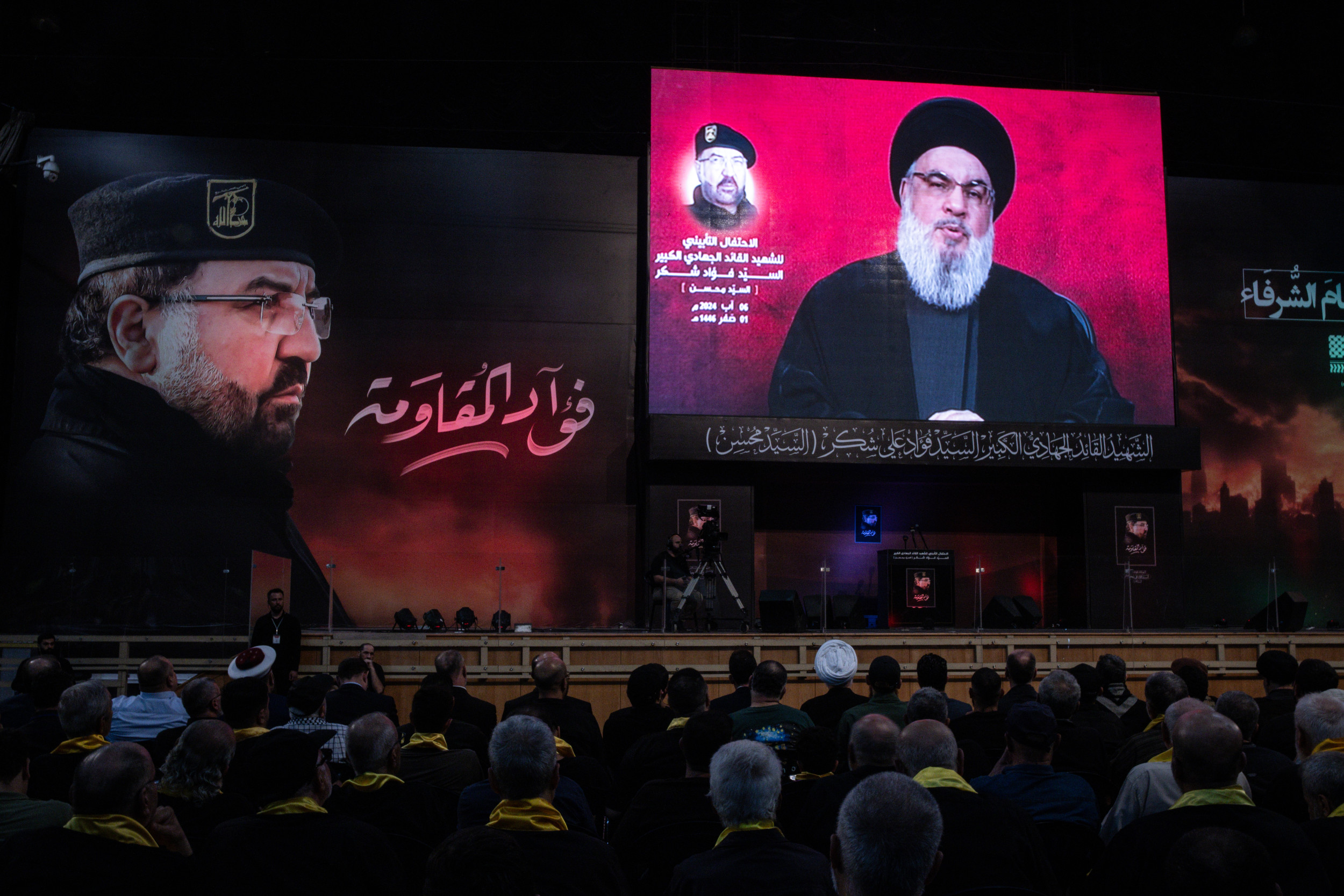In a heated Sunday address, Hassan Nasrallah, the secretary general of Hezbollah, asserted that Israel has surpassed “all red lines” following an intense exchange of attacks between the two nations.
Israel initiated a series of airstrikes in southern Lebanon, describing them as preemptive actions targeting Hezbollah’s capabilities. The Israeli military claimed that Hezbollah was gearing up for a rocket attack on Israeli territory. To that end, approximately 100 fighter jets conducted strikes at over 40 locations, allegedly destroying thousands of Hezbollah rocket launcher barrels.
In response, Hezbollah reported that their “Islamic Resistance” had launched numerous drones targeting significant Israeli military objectives. They also disclosed that a barrage of missiles was aimed at various Israeli sites, including barracks and Iron Dome installations in the occupied northern territories.
During his address, Nasrallah asserted that Israel’s actions against Beirut’s southern suburbs represented a dangerous escalation. He claimed that contrary to Israeli statements, their missile capabilities remained intact, saying, “only two of our rocket launchpads were hit after our operation, not before it.” He dismissed the notion that Israel had successfully targeted any strategic missiles.
Hezbollah claimed that their military operation for the day had concluded without further escalation.

Chris McGrath/Getty Images
The exchange of fire seemingly came to a halt by mid-morning, with both parties asserting they had targeted military installations only, according to reports from the Associated Press.
This incident marked one of the most significant escalations since the onset of hostilities between Israel and Hezbollah, which intensified after Hamas’s attack on October 7, 2023. Although exchanges of fire had occurred following the attack, a major escalation had been avoided until now.
Concerns about a broader regional conflict are mounting, particularly as potential implications for the United States and Iran loom amidst ongoing discussions for a ceasefire in Gaza.
According to Sean Savett, a spokesperson for the National Security Council, President Joe Biden is “closely monitoring events in Israel and Lebanon.” Savett noted that senior U.S. officials are in continuous communication with their Israeli counterparts, reaffirming America’s commitment to supporting Israel’s right to self-defense while advocating for regional stability.
As the situation develops, the email update cautioned that “the security environment remains complex and can change quickly.”
